On Good Governance Day, we reflect on the essential elements of effective governance: transparency, accountability, and the active participation of citizens. These principles are not mere ideals; they are the foundation for building strong, resilient communities. In the remote villages of Dhadgaon block, Nandurbar District, Maharashtra, Aadiwasi Janjagruti is putting these principles into action. Facing significant challenges such as water scarcity, poor road infrastructure, and inadequate access to healthcare and education, these communities are experiencing a grassroots transformation. Aadiwasi Janjagruti, founded by Nitesh Bhardwaj, is driving this change, demonstrating that empowerment and progress are possible even in the most marginalized corners of India.
The Birth of a Vision
In 2016, as an SBI Youth for India Fellow, Nitesh Bhardwaj was introduced to the harsh realities of life in Dhadgaon, one of India’s most underdeveloped regions. Despite the existence of numerous government schemes, the tribal communities remained trapped in poverty and deprivation due to a lack of information, transparency, and connectivity. The disconnect between the government and the people, compounded by corruption, left many unaware of their entitlements. "I started this initiative to bridge the gap between the government and the people, and to include local people in their own development processes. The issues that I faced while being in the community during the fellowship inspired me to start this initiative,” recalls Nitesh. This realization laid the foundation for Aadiwasi Janjagruti.
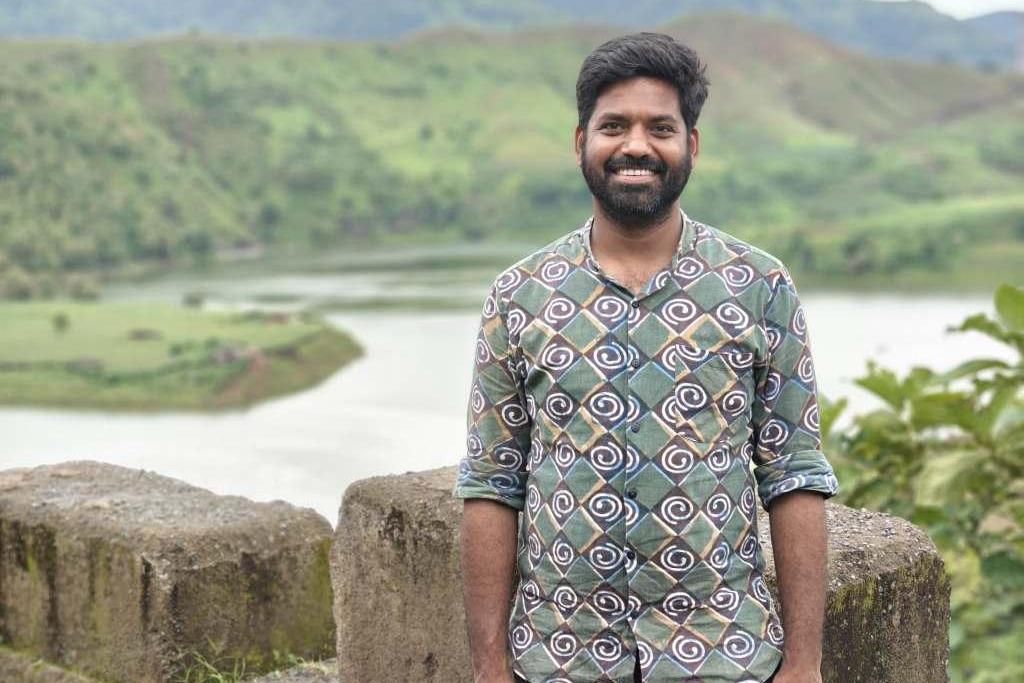 Aadiwasi Janjagruti’s roots lie in Nitesh’s transformative experience as an SBI Youth for India fellow. As Nitesh explains, "The fellowship gave me a chance to experience a very different kind of world. I have always lived and studied in the urban areas, but the fellowship provided me a chance to experience something very different and transformative. During the fellowship, the constant guidance and support from the fellowship team and the partner NGO (BAIF) gave me the confidence to do what I wanted to do. The NGO introduced me and provided me a base in the community to start this organization." This immersive experience ignited a passion to empower these marginalized communities through a unique blend of hyperlocal communication, grassroots leadership, and sustainable development initiatives. Furthermore, crucial early support came in the form of Sahyog grants from the SBI Foundation: a ₹1 lakh grant in 2020 which helped secure essential organizational documents like 12A and 80G after registering the organization as the Ulgulan for Social Change Foundation in 2019, and a further ₹6 lakh grant in 2023 to launch a pilot micro-entrepreneurship project in Dhadgaon. Beyond financial support, the fellowship also provided invaluable networking opportunities that have been instrumental in Aadiwasi Janjagruti's growth.
Aadiwasi Janjagruti’s roots lie in Nitesh’s transformative experience as an SBI Youth for India fellow. As Nitesh explains, "The fellowship gave me a chance to experience a very different kind of world. I have always lived and studied in the urban areas, but the fellowship provided me a chance to experience something very different and transformative. During the fellowship, the constant guidance and support from the fellowship team and the partner NGO (BAIF) gave me the confidence to do what I wanted to do. The NGO introduced me and provided me a base in the community to start this organization." This immersive experience ignited a passion to empower these marginalized communities through a unique blend of hyperlocal communication, grassroots leadership, and sustainable development initiatives. Furthermore, crucial early support came in the form of Sahyog grants from the SBI Foundation: a ₹1 lakh grant in 2020 which helped secure essential organizational documents like 12A and 80G after registering the organization as the Ulgulan for Social Change Foundation in 2019, and a further ₹6 lakh grant in 2023 to launch a pilot micro-entrepreneurship project in Dhadgaon. Beyond financial support, the fellowship also provided invaluable networking opportunities that have been instrumental in Aadiwasi Janjagruti's growth.
Building Solutions Through Community Engagement
Registered as the Ulgulan for Social Change Foundation in 2019, the organization aimed to bridge these gaps by leveraging hyperlocal communication networks and fostering grassroots leadership. Its mission was clear: empower tribal communities to access their rights, opportunities, and entitlements while promoting sustainable development. Inspired by the stark disparity between urban and tribal realities observed during his SBI fellowship, Nitesh, armed with a ₹1 lakh Sahyog Grant in 2020, launched Aadiwasi Janjagruti, beginning its transformative work which has now expanded across 176 villages.
The organization leverages hyperlocal communication networks and participatory governance tools like Gram Sabhas, Mahila Sabhas, and Bal Sabhas to promote transparency and accountability. Workshops on local governance, digital skills, and entrepreneurship empower tribal youth and women to become community leaders.
One of their most innovative approaches is using digital storytelling—through videos, sketches, and short films—to educate communities about government schemes and entitlements. Recognizing the lack of awareness as a significant barrier, Aadiwasi Janjagruti turned to the power of storytelling. Armed with mobile phones and a deep understanding of the local culture, they created zero-budget videos, sketches, and short films that resonated with the villagers. These films, addressing issues like child labor, sanitation, and corruption in the local language, were screened in village meetings using projectors, sparking dialogue and igniting a desire for change. Collaborations with local authorities have mobilized resources worth over ₹10 crore for development projects in just two years.
From Awareness to Action: Fostering Grassroots Leadership:
Aadiwasi Janjagruti didn't just raise awareness; they fostered leadership by training tribal youth in digital skills, turning them into citizen journalists who could amplify their community's voices. These young leaders, equipped with knowledge and confidence, actively participated in Gram Sabhas (village councils), demanding accountability and transparency from local authorities. This has even led to 14 of their trained volunteers being elected as members of the Gram Panchayat, including two Sarpanches and two Deputy Sarpanches, demonstrating the deep impact on local governance.
Measurable Impact and Inspiring Stories
The impact of Aadiwasi Janjagruti’s initiatives is evident:
- 2,500 families have accessed government schemes such as PMAY, MGNREGA, and PMJJY, improving their quality of life.
- 60 tribal youth have been trained in digital skills, with many becoming mobile journalists amplifying local issues.
- 14 volunteers have been elected to Gram Panchayats, including two Sarpanches and two Deputy Sarpanches, representing a historic shift in community governance.
- A digital learning center established in Sawaryadigar village has bridged the digital literacy gap in remote areas.
Two compelling examples highlight their work:
- When labourer Kisan T. Pawar tragically lost his life, his family, unaware of the Pradhan Mantri Suraksha Bima Yojana (PMSBY) scheme, was left in a dire financial situation. Aadiwasi Janjagruti stepped in, navigating the bureaucratic maze and ensuring the family received their rightful compensation. This not only provided immediate relief but also showcased the power of knowledge and advocacy.
- When six children were denied school admission due to the lack of Aadhaar cards, Aadiwasi Janjagruti intervened, working with local officials to overcome the bureaucratic hurdles and ensure the children received their birth certificates and subsequently, their Aadhaar cards. This opened doors not just to education but also to various government welfare programs.
Challenges and Sustainability
The journey was not without hurdles. Gaining the trust of skeptical tribal communities was a significant challenge for an outsider like Nitesh. Cultural sensitivities and resource limitations further tested the organization’s resolve. Insufficient financial, technical, and human resources for impactful execution remain a challenge at times. However, transparency, grassroots engagement, and the inclusion of local team members turned the tide.
Nitesh emphasizes, “We have built credibility through grassroots engagement and transparency in projects. For resource mobilization, we partnered with organizations and secured grants, such as the Sahyog Grant from SBI Foundation, Google News Initiative Grant, YouTube News Accelerator Program and others. We also collaborated with local leaders and maintained communication with government authorities and local community.”
Aadiwasi Janjagruti's vision extends beyond immediate needs. They established digital learning centers, reducing the literacy gap and improving digital literacy. They also initiated micro-entrepreneurship programs, fostering self-reliance and long-term economic empowerment, with plans to support 100 micro-entrepreneurs in the coming years. Their focus on capacity building ensures the initiative remains community-driven and sustainable.
A Model for Change and the Future
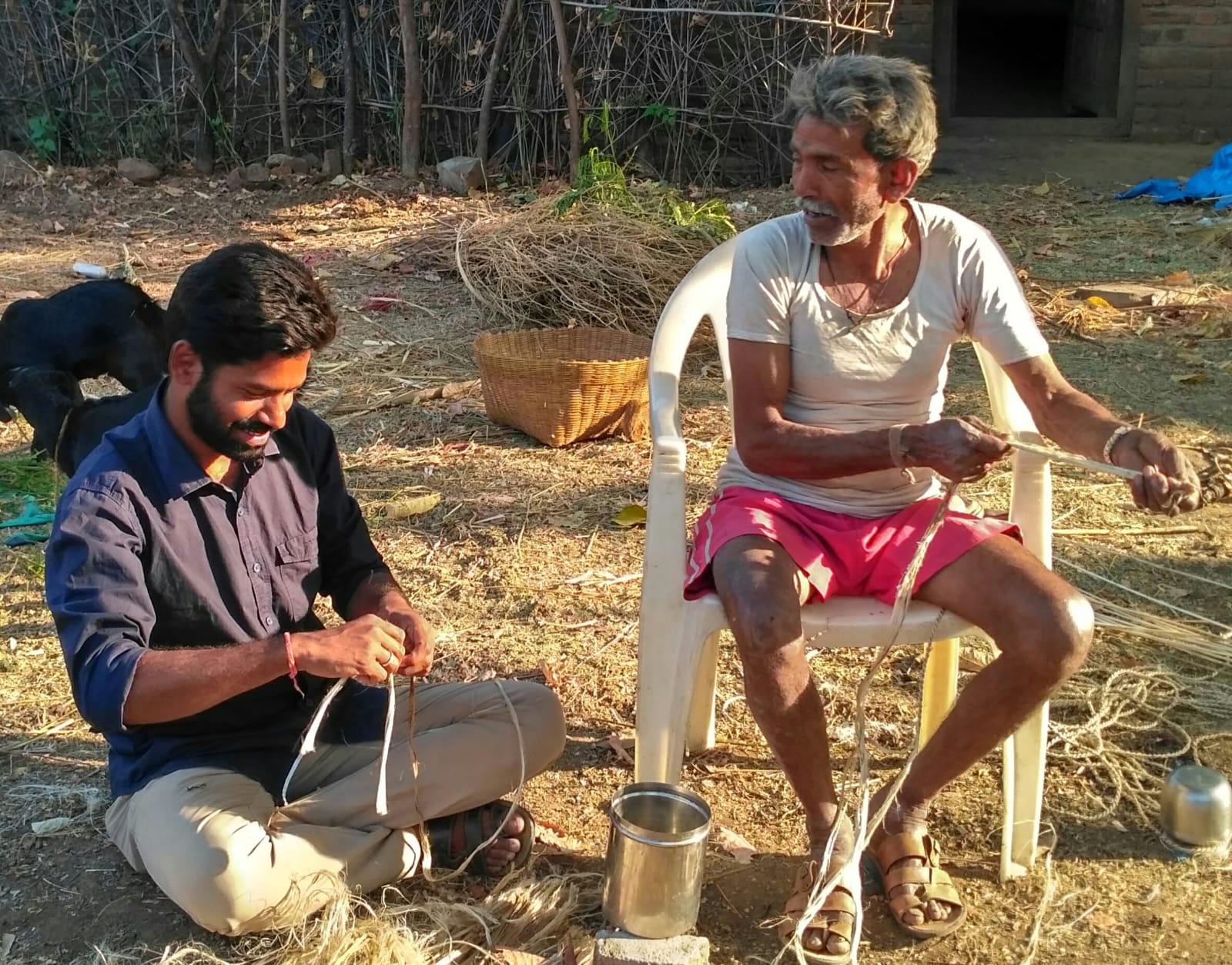 Aadiwasi Janjagruti's journey is a testament to the power of hyperlocal communication, community participation, and empowering local voices. Their success story is an inspiration for anyone seeking to create social change, proving that with passion, innovation, and a deep understanding of the community's needs, even the most remote areas can witness remarkable progress. They have collaborated with over 20 Gram Panchayats to enhance local governance, social entitlements, transparency, and accountability.
Aadiwasi Janjagruti's journey is a testament to the power of hyperlocal communication, community participation, and empowering local voices. Their success story is an inspiration for anyone seeking to create social change, proving that with passion, innovation, and a deep understanding of the community's needs, even the most remote areas can witness remarkable progress. They have collaborated with over 20 Gram Panchayats to enhance local governance, social entitlements, transparency, and accountability.
The local community has been integral to driving change through active participation in Aadiwasi Janjagruti's initiatives. By identifying their challenges, they collaborated to co-create solutions, from advocating for rights and entitlements to creating micro-entrepreneurs. Aadiwasi Janjagruti empowers the community by fostering leadership skills, building awareness of governance systems, and promoting self-reliance. Women and youth have particularly benefited through leadership training, gaining a voice in decision-making processes. This participatory model ensures that change is not only impactful but also sustainable. Nitesh adds, "One of the major change that we have seen is that people have started raising their voices. They have started asking questions from their elected representative and government officials."
Looking Ahead
Aadiwasi Janjagruti's future is bright. It aims to deepen its impact by expanding to two additional blocks in Nandurbar and supporting 100 micro-entrepreneurs over the next five years. The organization is committed to sustainability through diversified funding, corporate partnerships, and empowering local leaders to take the initiative forward independently. "Building local capacity through training and empowering community leaders ensures that the initiative remains resilient and self-sustaining. Long-term goals include institutionalizing programs within local governance structures and expanding digital infrastructure to scale impact across more regions," explains Nitesh.
A Ripple of Change
Aadiwasi Janjagruti has created a ripple effect of positive change, fostering self-reliance, strengthening local governance, and empowering communities. Their work proves that with the right support and a focus on local needs, even the most marginalized can build a more prosperous future.
Drawing from his experience, Nitesh shares a crucial message for aspiring changemakers: "My final message would be to stay committed and adaptable in your approach to creating social change. Embrace the community’s input, remain open to learning, and be willing to evolve your initiatives based on feedback and changing circumstances. By fostering collaboration and prioritizing community-driven solutions, you can make a lasting impact that goes beyond mere aid, leading to genuine empowerment and sustainability."




 Aadiwasi Janjagruti’s roots lie in Nitesh’s transformative experience as an SBI Youth for India fellow. As Nitesh explains, "The fellowship gave me a chance to experience a very different kind of world. I have always lived and studied in the urban areas, but the fellowship provided me a chance to experience something very different and transformative. During the fellowship, the constant guidance and support from the fellowship team and the partner NGO (BAIF) gave me the confidence to do what I wanted to do. The NGO introduced me and provided me a base in the community to start this organization." This immersive experience ignited a passion to empower these marginalized communities through a unique blend of hyperlocal communication, grassroots leadership, and sustainable development initiatives. Furthermore, crucial early support came in the form of Sahyog grants from the SBI Foundation: a ₹1 lakh grant in 2020 which helped secure essential organizational documents like 12A and 80G after registering the organization as the Ulgulan for Social Change Foundation in 2019, and a further ₹6 lakh grant in 2023 to launch a pilot micro-entrepreneurship project in Dhadgaon. Beyond financial support, the fellowship also provided invaluable networking opportunities that have been instrumental in Aadiwasi Janjagruti's growth.
Aadiwasi Janjagruti’s roots lie in Nitesh’s transformative experience as an SBI Youth for India fellow. As Nitesh explains, "The fellowship gave me a chance to experience a very different kind of world. I have always lived and studied in the urban areas, but the fellowship provided me a chance to experience something very different and transformative. During the fellowship, the constant guidance and support from the fellowship team and the partner NGO (BAIF) gave me the confidence to do what I wanted to do. The NGO introduced me and provided me a base in the community to start this organization." This immersive experience ignited a passion to empower these marginalized communities through a unique blend of hyperlocal communication, grassroots leadership, and sustainable development initiatives. Furthermore, crucial early support came in the form of Sahyog grants from the SBI Foundation: a ₹1 lakh grant in 2020 which helped secure essential organizational documents like 12A and 80G after registering the organization as the Ulgulan for Social Change Foundation in 2019, and a further ₹6 lakh grant in 2023 to launch a pilot micro-entrepreneurship project in Dhadgaon. Beyond financial support, the fellowship also provided invaluable networking opportunities that have been instrumental in Aadiwasi Janjagruti's growth. Aadiwasi Janjagruti's journey is a testament to the power of hyperlocal communication, community participation, and empowering local voices. Their success story is an inspiration for anyone seeking to create social change, proving that with passion, innovation, and a deep understanding of the community's needs, even the most remote areas can witness remarkable progress. They have collaborated with over 20 Gram Panchayats to enhance local governance, social entitlements, transparency, and accountability.
Aadiwasi Janjagruti's journey is a testament to the power of hyperlocal communication, community participation, and empowering local voices. Their success story is an inspiration for anyone seeking to create social change, proving that with passion, innovation, and a deep understanding of the community's needs, even the most remote areas can witness remarkable progress. They have collaborated with over 20 Gram Panchayats to enhance local governance, social entitlements, transparency, and accountability.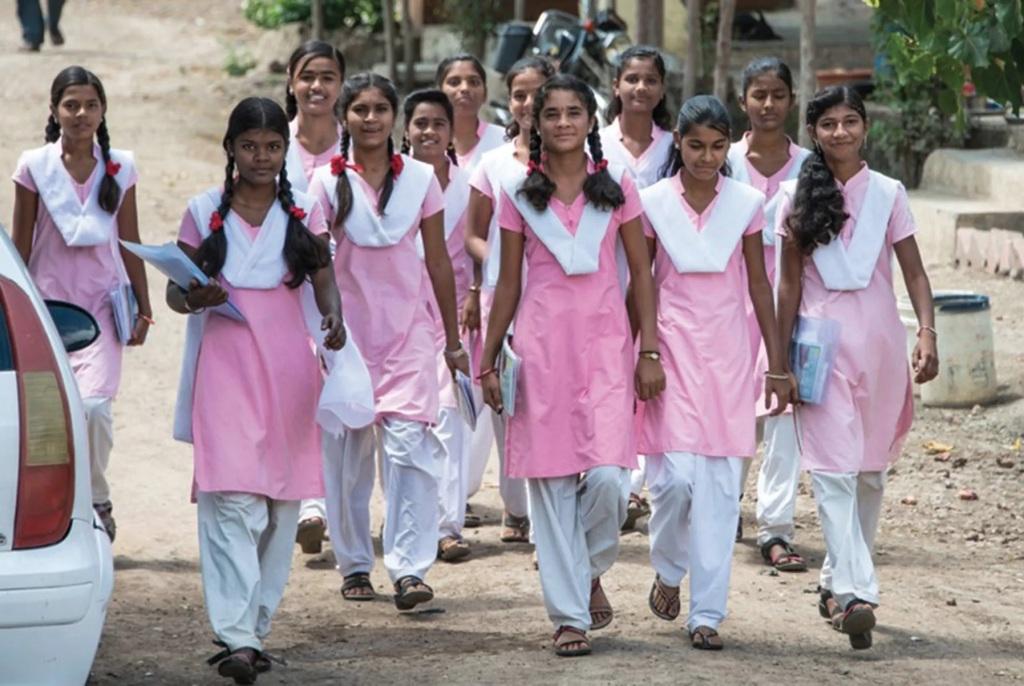


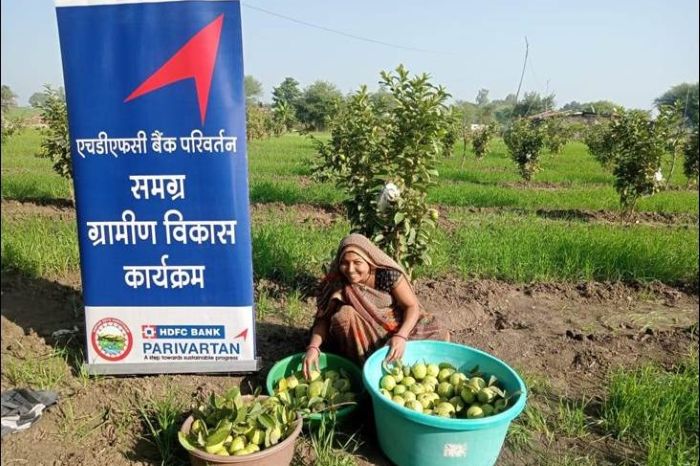
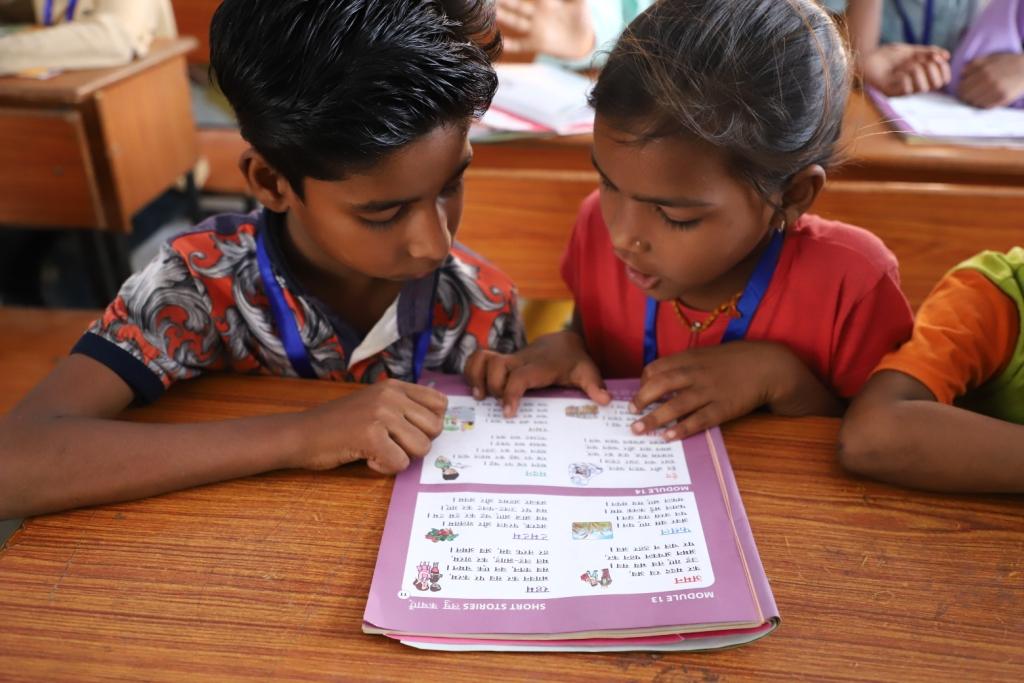
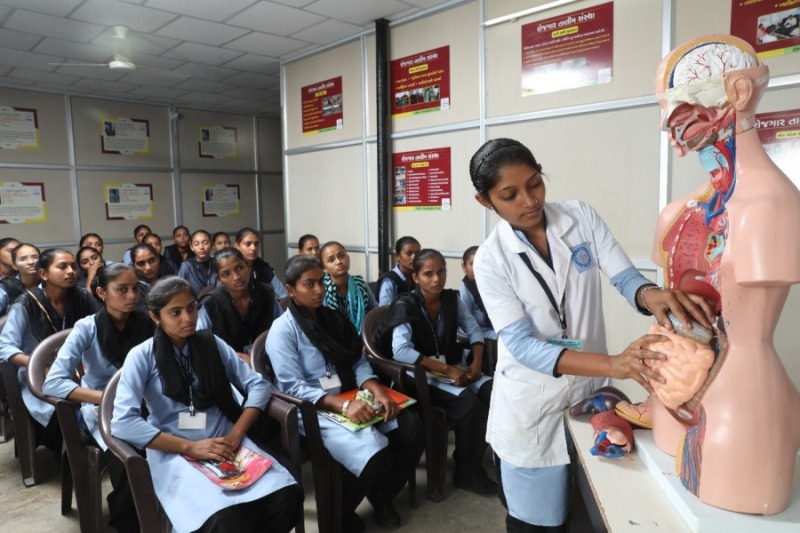

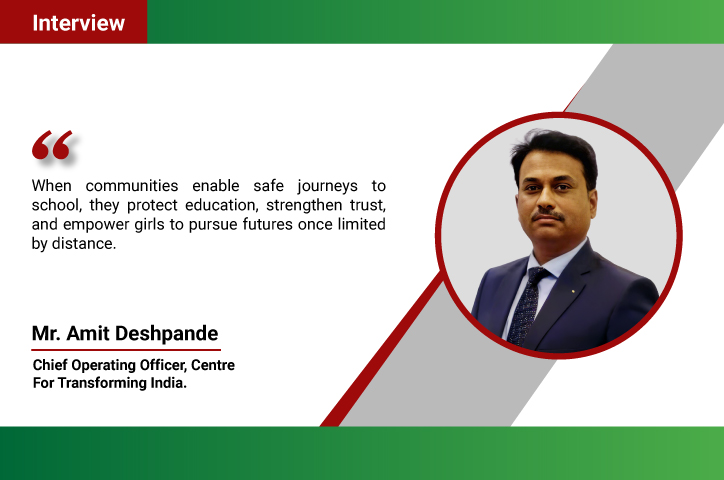
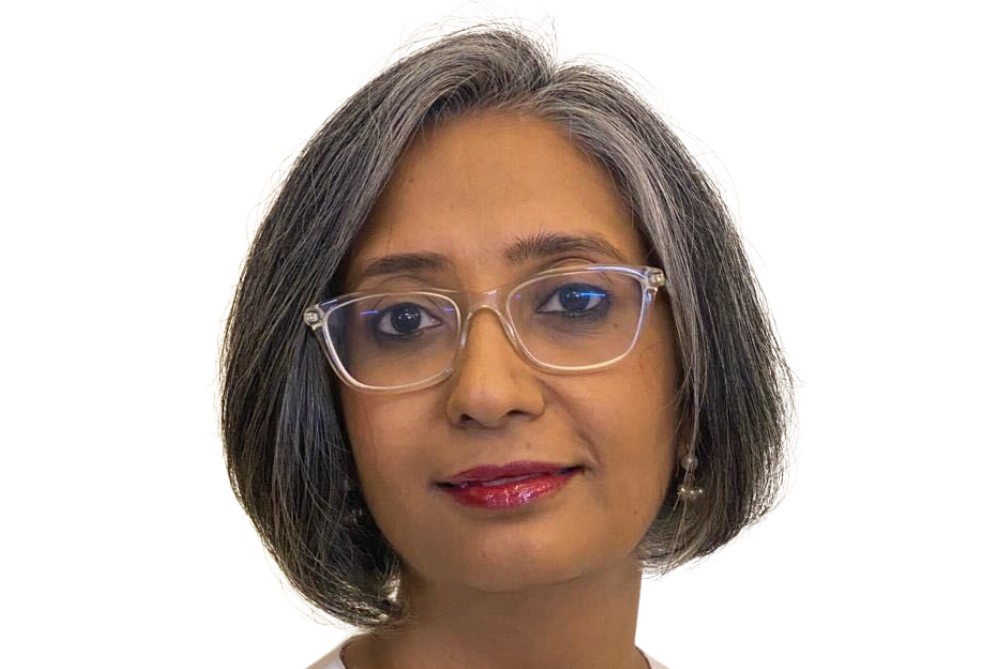





.jpg)



